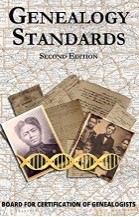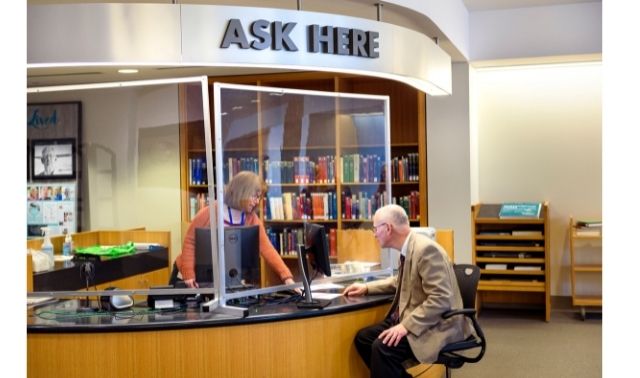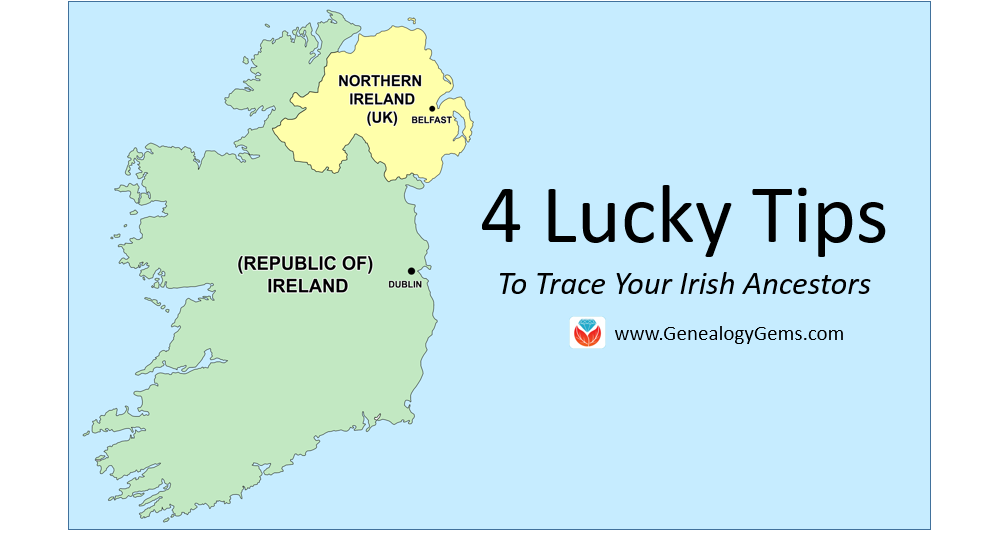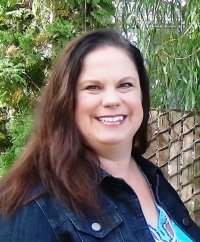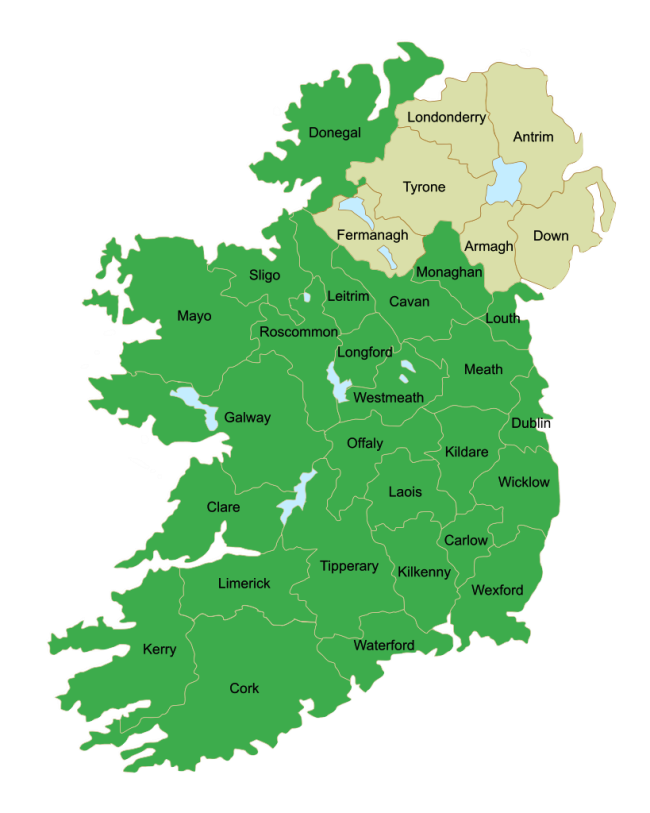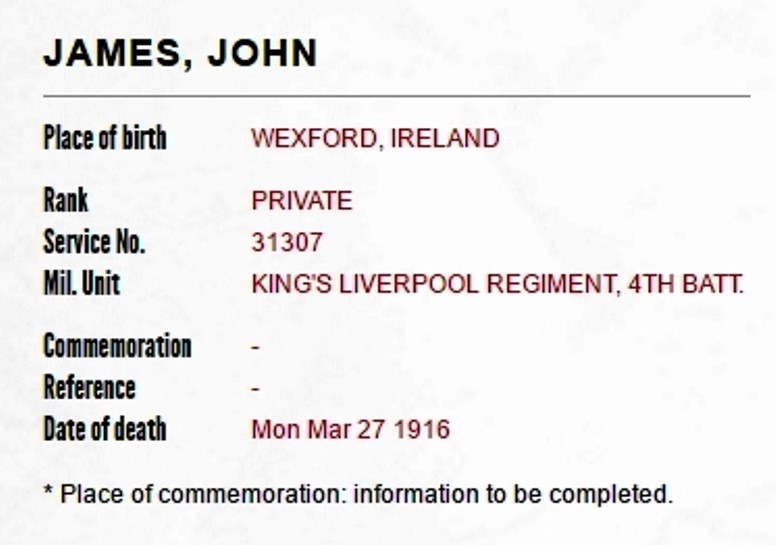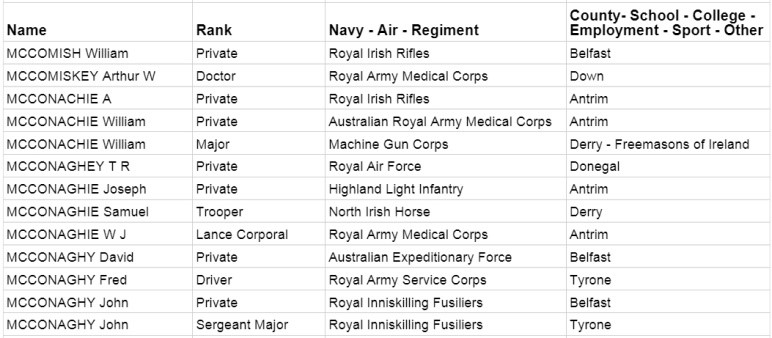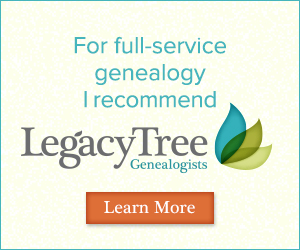Genealogy Gems Podcast Episode 232
Genealogy Gems Podcast Episode 232
with Lisa Louise Cooke
August 2019
Listen now, click player below:
Download the Show Notes PDF in the Genealogy Gems Podcast app.
Please take our quick podcast survey which will take less than 1 minute. Thank you!
In this episode:
- Exploring what you can do to go deeper in your genealogy research for a more accurate family tree with Elissa Scalise Powell
- Irish genealogy podcaster Lorna Moloney, a professional genealogist with Merriman Research, discusses Irish genealogy.
Mailbox
Marcia Finds Treasure on eBay
“I recently remembered your idea of searching for family related things on eBay.
My grandfather and his brother both worked as agents for the Wrought Iron Range Co. of St. Louis. They sold excellent quality wrought iron stoves and my great uncle did very well there as a supervisor.
I did a search for the Wrought Iron Range Co on eBay and immediately pulled up a history of the company, an advertisement for the range and a metal they gave away. I bought them all!
However, the best goodie which I am still bidding on is a “salesman’s sample Wrought Iron Range stove about 12 inches tall and 14 inches long in color and with all working parts.
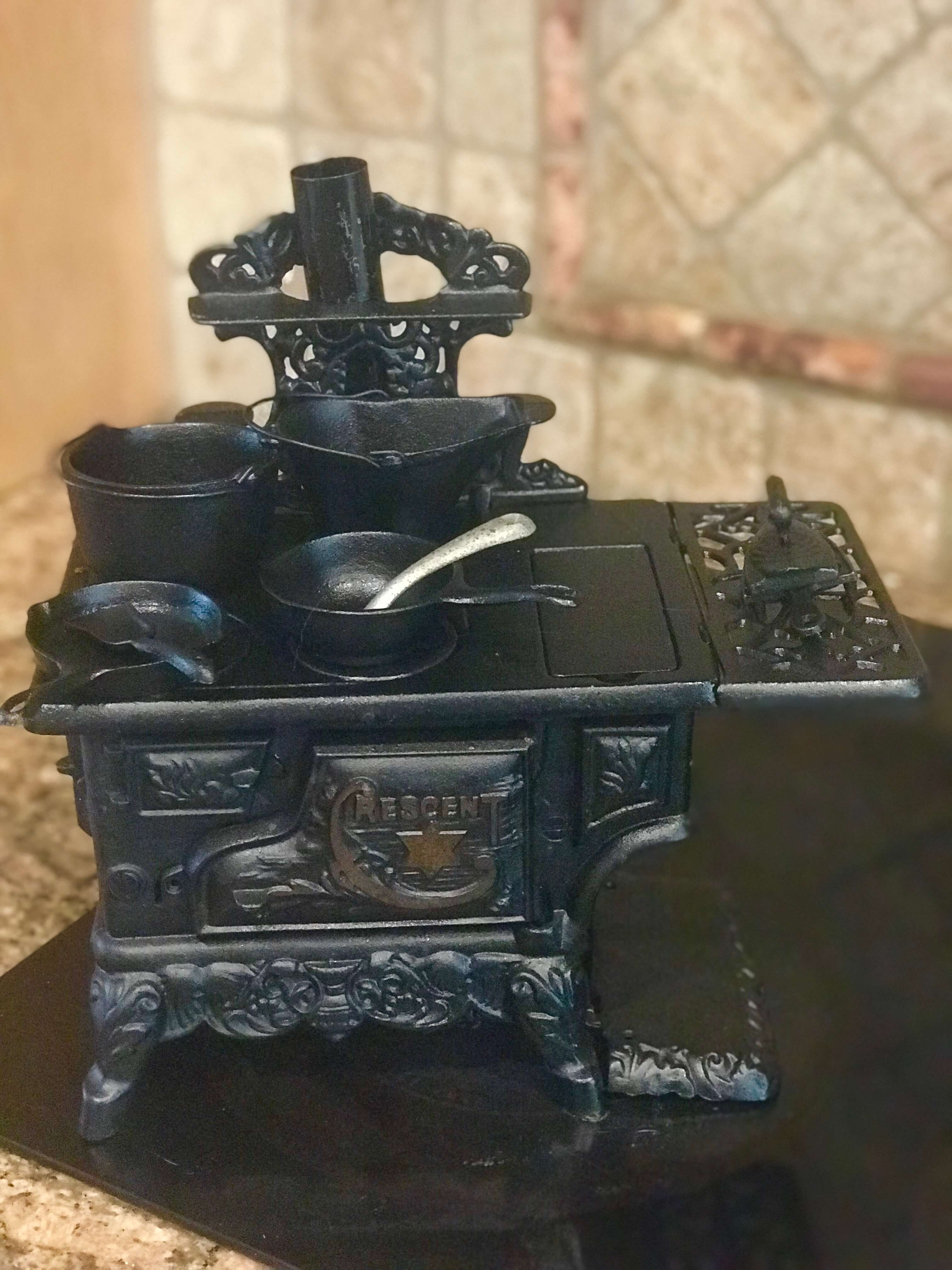 (Photo: The stove Lisa inherited from her grandmother.)
(Photo: The stove Lisa inherited from her grandmother.)
I may not win the bid, but I am thrilled with what I found.
This will bring my grandfather’s occupation to life for my great nephews!!!!”
More eBay Research Strategies on Genealogy Gems:
- Learn more about eBay alerts in Genealogy Gems Podcast Episode 140.
- Genealogy Gems Premium episode 76
- Genealogy Gems Premium episode 16
- Learn more here about Genealogy Gems Premium Membership
Steve Shares a New German Translation Resource
“I came across a new site that you might like to inform your listeners about. It is very new and just getting started, so I know they would appreciate a mention.
The name of this new site is “German Letters in Letters” [germanletters.org]. What they are doing is trying to collect letters written between German immigrants to the US and their relatives back home in Germany.
You can very easily submit scanned copies of any letters you have and the really neat thing is that they will post them at their site. Once they post them, they are asking for translations by any volunteers. So, this is an excellent way to have any letters in your possession to be translated….. for FREE!
I was given about 30 letters written to my GG grandfather, Johann Bernard Husam, who immigrated to Adams Co., Illinois about 1855.
They are from his siblings, nieces, and a nephew back in Germany. They range from 1866 to the early 1900s.
I scanned them and they are now on this site. I was given these letters by great granddaughter-in-law [my aunt] who spoke German as she had grown up in the Sudetenland area of Czechoslovakia. She had escaped Czechoslovakia at the end of WWII before the Russians invaded. She, thankfully, had translated all of the letters.”
Resource:
Learn more about German research from these articles at Genealogy Gems.
What Ann Likes About the Podcast
Hi, Lisa, I’d love to say that your podcast has helped me with a genealogy brick wall but at this point I’m only a “drop-in genealogist,” figuring that I’m the only one in the family interested at this time (working on one grandson though, because I think he’d be a real asset) in finding and preserving family stories.
I do research in fits and starts. But, I do love your podcasts. I’m catching up on back episodes now and recently listened to one that started with you describing a granddaughter’s first Christmas coming up.
It reminded me of one of the best things about your podcasts – it’s like you’re sitting in my living room with me, having a cup of tea, discussing your stories and tips and tricks to help with mine.
Thank you so much for all the information, and for your casual, personal, yet professional style!”
Kristine is No Longer a “Cooke-Cutter” Researcher
“I just retired and guess what is first on my list of things I WANT to do? 🙂 I jumped in with both feet listening to your Premium podcasts and realized a few times that I am the ‘cookie-cutter’ researcher. But, no more. You are the Captain of my ship now. Thank you!
After binging on your podcasts the last two weeks, the first bit of advice I took was changing the way I searched on Newspapers.com. My family’s everyday life’s treasures were buried in the pages of the local news! You made me take a second look after I dismissed the possibility of ever reading about them.
Thank you so much for your dedicated work on behalf of all the genealogists. My Premium subscription will NEVER run out. When a family member says “I don’t know what to get you” I’m prepared to solve that dilemma!
Warm regards,
A listener for life”
Resource:
 Read Lisa’s article called A Shocking Family Secret and 3 Powerful Newspaper Search Tips
Read Lisa’s article called A Shocking Family Secret and 3 Powerful Newspaper Search Tips
This podcast is sponsored by:
GEM: Overcoming Shallow Research with Elissa Scalise Powell
About today’s guest:
Elissa Scalise Powell, CG, CGL, is co-director of the Genealogical Research Institute of Pittsburgh (GRIP); past-president of the Board for Certification of Genealogists, and 2017 She won the Association of Professional Genealogists Professional Achievement Award. She is a Certified Genealogist®, and Certified Genealogical LecturerSM. You can reach Elissa at Elissa@PowellGenealogy.com. (Thank you to Elissa for contributing notes for this episode.)

The Genealogical Proof Standard (GPS)
The Genealogical Proof Standard was created to help genealogists gain confidence in their research conclusions by providing criteria that can be followed. A genealogical conclusion is considered proved when it meets all five GPS components.
The 5 Components of the GPS
- Reasonably exhaustive research – This type of research emphasizes original records that provide the information for all evidence that might answer a genealogist’s question about an identity, relationship, event, or situation
- Complete, accurate citations to the source or sources of each information item contributing—directly, indirectly, or negatively—to answers about that identity, relationship, event, or situation
- Tests—through processes of analysis and correlation—of all sources, information items, and evidence contributing to an answer to a genealogical question or problem
- Resolution of conflicts among evidence items pertaining to the proposed answer
- A soundly reasoned, coherently written conclusion based on the strongest available evidence
Resource
The book Genealogy Standards by the Board for Certification of Genealogists provides a standard by which all genealogists can pattern their work.
About Sources
Some sources are considered “Low-hanging fruit.” They can be described as:
- straightforward research
- easily accessible
- record type is easily understood
- document states the fact desired
Many times, genealogists will need to stretch and reach for harder to find sources. These types of sources are:
- not straightforward
- possibly unknown to you at this time
- not easily accessible
- time-consuming to explore
- take study to understand it
- not self-explanatory
Elise’s Examples of the Pitfalls of Shallow Research
- Believing that family stories have been accurately passed down in all details.
- Believing that official documents are always correct.
- Believing that published records, especially transcriptions or abstracts, are faithful representations of the original.
- Premature conclusions can come back to haunt us.
- Disregarding ill-fitting evidence can create brick walls.
- Careless citation practices do not give us the tools we need for analysis.
- Researching and understanding historical context is crucial to solving problems.
- Barriers requiring expertise beyond our own should not hamper the research process.
- Assuming there is only one record and suspending research when the first one is found.
- Assuming that details are unimportant, or not noticing them at all.
Elissa also points out that when we do shallow research, we can actually do more harm than good. Shallow genealogical research:
- Doesn’t allow our ancestors to reveal themselves or their reasons for actions
- Puts them in the wrong time and place
- Can create wrong kinship ties
- Misleads future researchers
- Causes brick walls
- Wastes our time
- Does a disservice to our current family and descendants
GEM: Irish Genealogy with Lorna Moloney of Merriman Research
While speaking at THE Genealogy Show conference in Birmingham England in June of this year I got a chance to sat down for the first time with Lorna Moloney host of The Genealogy Radio show which is produced at Raidio Corcabaiscinn. It airs live on Thursday at 4p.m. and is podcast (click here for episodes). Lorna runs Merriman Research which is dedicated to bringing educational solutions and resources to a wide audience.
Lorna’s website: www.traceyouririshroots.com

Photo: Lisa and Lorna at THE Genealogy Show in Birmingham, England in 2019.



